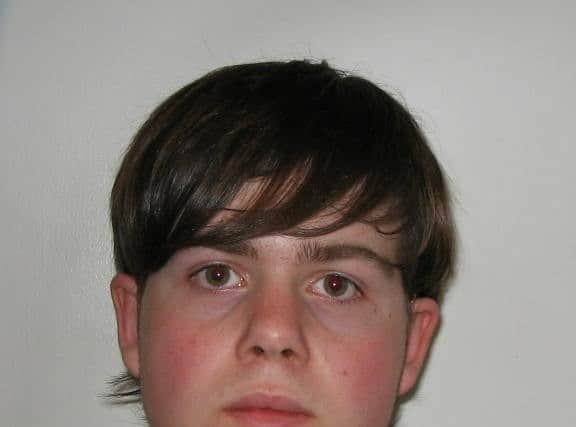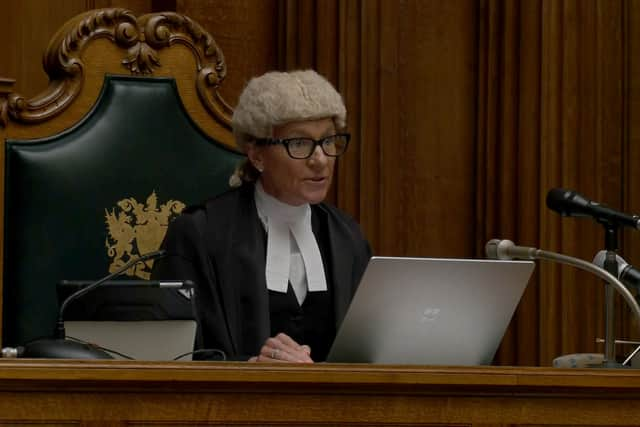Ben Oliver: young man jailed for life for killing grandfather in first ever televised sentencing
and live on Freeview channel 276
A young boy has been sentenced to life after killing his grandfather in the first ever televised court sentencing.
Ben Oliver was handed the sentence at the Old Bailey in London, with televsion cameras looking on in the court.
Advertisement
Hide AdAdvertisement
Hide AdThe 25-year-old had his conviction reduced from murder to manslaughter after his background was taken into the consideration.


What did Ben Oliver do?
The young man was convicted of killing his 74-year-old grandfather, David Oliver, at their hme in Mottingham, south London.
He stabbed the elderly, bedridden man to death after developing an “obsessive tunnel vision” to eventually “ferociously” kill his grandfather.
The court heard that Oliver had once loved his grandparents, but that this turned to hatred after he was made aware of sexual abuse allegations against his grandfather.
Advertisement
Hide AdAdvertisement
Hide AdOliver himself had been convicted of sexual offences against a young girl, and left youth detention in 2019.
The killing took place in January 2021.
Judge Munro told Oliver: “On the 19th the carers came as usual to see to your grandfather’s needs. When they had gone your nan took him a biscuit and coffee. That was the last time she saw him alive.
“You were noted to be jittery and couldn’t rest. You asked to lie down with your nan which you did.
“However, when she got up you went downstairs. It was around 11.30-11.45am. You selected a knife from the kitchen and you went to your grandfather’s room.
Advertisement
Hide AdAdvertisement
Hide Ad“You cut his throat repeatedly with severe force, you stabbed his mouth so he could not cry out and his eyes so that he couldn’t look at you as you killed him. He tried in vain to protect himself by raising his right arm. He was utterly powerless.”
Oliver stabbed his grandfather a total of 28 times - 21 times in his face and seven times in his torso - with the man dying quickly from blood loss.
After he had killed his grandad, Oliver told his grandmother that “he can’t hurt you any more”, before sending a text message to his mum which read: “Mum I’ve killed grandad, I love you.”
Oliver was noted to be cooperative with emergency services, with his grandmother also telling police that “we all wanted to kill him”.
What sentence was Ben Oliver given?
Advertisement
Hide AdAdvertisement
Hide AdOliver stood trial at the Old Bailey where was accused of murder.
The jury cleared him of the crime, however Oliver admitted to the manslaughter of his grandfather due to diminished responsibility.
His autistic spectrum disorder combined with other emotional and mental factors diminished his responsibility for the killing, the court was told.
At his sentencing, Judge Munro told the 25-year-old: “In your case I do consider the seriousness of the offence does justify a life sentence.”
Oliver will serve a minimum of 10 years and eight months.
Why are court sentencings being televised?
Advertisement
Hide AdAdvertisement
Hide AdOliver’s case was the first to see the sentencing televised following a major change to the law.
The Ministry of Justice made the announcement on Wednesday, allowing television cameras from Sky News, BBC, ITN and Press Association into courts in England and Wales for the very first time.


The move was made in an attempt to promote open justice in the UK court system.
Lord Chancellor and Justice Secretary Dominic Raab said: “Opening up the courtroom to cameras to film the sentencing of some of the country’s most serious offenders will improve transparency and reinforce confidence in the justice system.
Advertisement
Hide AdAdvertisement
Hide Ad“The public will now be able to see justice handed down, helping them understand better the complex decisions judges make.”
Cameras will still not be permitted in court during full crown court trials, with sentencings only set to be televised.
In addition to this, only the judge will be shown on camera to protect the identitiy of those involved with trials, including vitcims.
